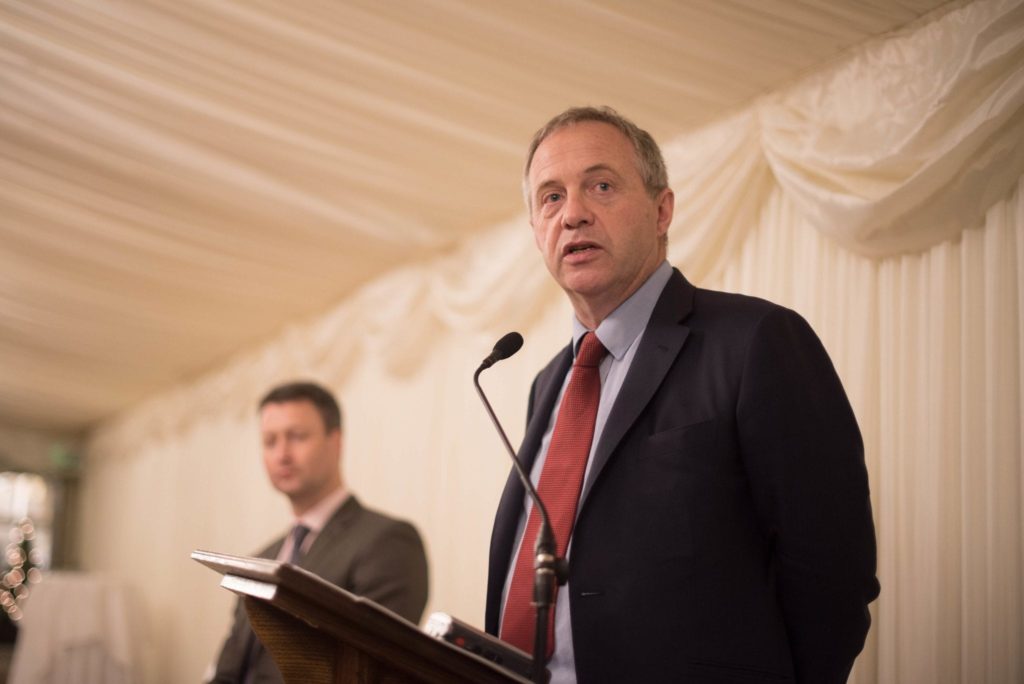FRESH AIR
Mann’s mission to fight antisemitism
October 3, 2019 | Naomi Levin

By conventional measures, John Mann has not had a particularly remarkable career over 18 years in the British House of Commons.
He never served as a minister or shadow minister. So why then, after recently resigning his seat, was the Labour MP awarded a peerage by outgoing Conservative prime minister Theresa May?
Mann’s key achievement has been his tireless work fighting antisemitism. He spoke to the Australia/Israel Review about this work and his new appointment as Independent Adviser to the UK Government on Antisemitism.
During his parliamentary career, Mann chaired the All-Party Parliamentary Group on Antisemitism. Established in 2005, the group is comprised of British MPs representing a multitude of parties who are dedicated to combatting antisemitism.
Mann himself represents the Labour Party. Unsurprisingly, he has long been one of the most vocal critics of Jeremy Corbyn’s leadership of his party.
Under Corbyn’s leadership, more than 10 MPs have left the party citing Corbyn’s failure to deal with entrenched antisemitism. The Labour Party is now under investigation by the UK Equality and Human Rights Commission for allegedly discriminating against, harassing and victimising Jewish people.
“Jeremy Corbyn has had repeated opportunities to take action against antisemitism,” Mann told the Australia/Israel Review. “I have offered him advice, repeatedly, which he has failed to heed.
“He’s given a green light to antisemites and done nothing to reverse that.”
Despite his own passion for, and commitment to, the Labour Party, Mann said Corbyn should not be Britain’s next prime minister.
“I think the only way things will change, whether he is there or not, is if he can show a complete change of behaviour, though I doubt very much that he can,” Mann said.
Antisemitism in Britain is a headline issue.
Noting an upward trend over the preceding years, Britain’s Community Security Trust’s 2019 report recorded the highest ever number of recorded antisemitic incidents. Both the Jewish community and British Government concede that the reality is even worse, with many incidents going unreported.
Mann said his initial objective as Independent Adviser to the UK Government on Antisemitism will be to ensure all young British Jews know that they have a future in their home country. He plans to do this by addressing antisemitism among Britain’s political classes, and also by continuing to fight online antisemitism.
“I think it’s important to recognise that the situation for British Jews is not bad,” he told the Australia/Israel Review.
“The British Jewish community is active in all areas of civil life,” he added. “We have some of the best race relations laws in the world in the UK. However, the current political situation is unsettling and there has been a continuing rise in antisemitism, some of which is linked to that political situation.”
Mann does not claim Jewish heritage and his electorate does not boast any substantive Jewish community, so what has motivated him to act so vocally against antisemitism?
In Parliamentary speeches, Mann spoke of two formative events that led him to take up the antisemitism cause.
One was watching in horror the terrorist attack that killed 11 Israeli athletes at the 1972 Munich Olympics.
The other was learning that when members of his family helped establish the first local Labour Party branch in Leeds at the turn of the 20th century, they were supported by the local Jewish community at a time when support was hard to come by.
“It’s my responsibility, and it’s the responsibility of any decent politician to fight racism,” Mann told the Australia/Israel Review. “It wouldn’t occur to me to have it any other way than to be an outspoken anti-racist. It’s my duty, and a moral necessity.”
As chair of the All-Party Parliamentary Group on Antisemitism, Mann has worked hard to encourage all British political parties to deal with internal antisemitism.
Fortuitously, he told Westminster in 2011 that it was necessary to “sort out our own parties before pointing the finger at our opponents”.
The failure of Corbyn to take heed of that message, and expel from the Labour Party those who had expressed antisemitic views, has invoked Mann’s wrath. His own family have been victims of Corbyn’s supporters.
“When I took on this voluntary cross-party role [as chair of the All-Party Parliamentary Group on Antisemitism], I did not expect my wife to be sent, by a Labour Marxist antisemite, a dead bird through the post,” he said in April 2018.
He added his son had answered the door of the family home to the police bomb squad after a death threat from an Islamist source and his daughter’s movements were monitored by security for her safety.
About his own Labour party, he added, “People – young Jewish members – are scared to go to a Labour Party meeting with me, because they are fearful they will be intimidated and threatened and that their identity will be challenged.”
Mann’s work to combat antisemitism has also taken him beyond Westminster. He helped to establish the Inter-parliamentary Coalition for Dealing with Antisemitism, which brought together parliamentarians from around the world, including Australia, to share ways to deal with antisemitism in their home countries.
In acknowledging his departure from the House of Commons, UK Chief Rabbi Ephraim Mirvis paid tribute to Mann’s work: “For more than a decade, he has been one of the world’s foremost campaigners against the scourge of antisemitism.
“British society owes him a debt of immense gratitude for his courageous work and unyielding integrity as a highly principled Member of Parliament.”
RELATED ARTICLES

US Middle East strategy amid regional instability: Dana Stroul at the Sydney Institute

Antisemitism in Australia after the Bondi Massacre: Arsen Ostrovsky at the Sydney Institute





















